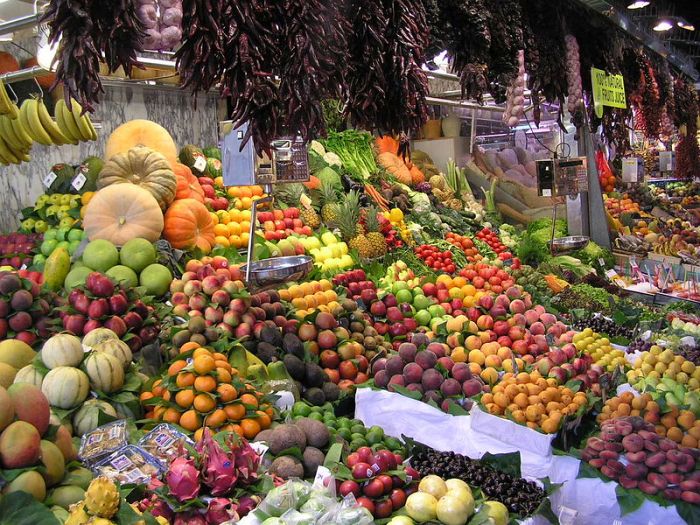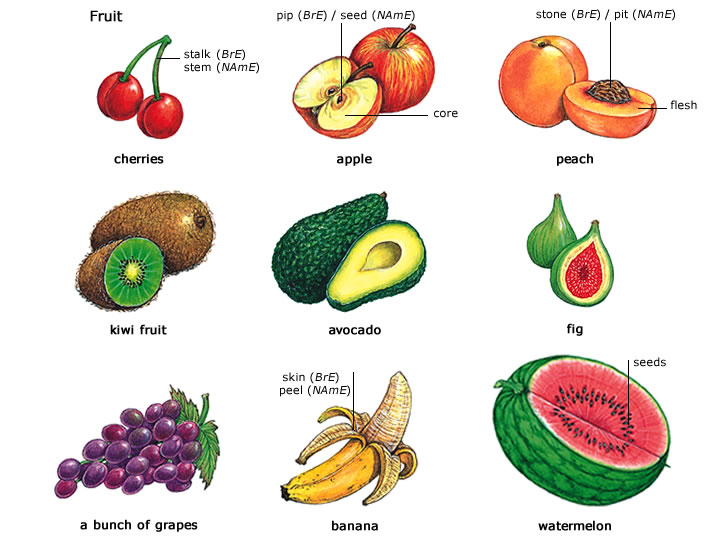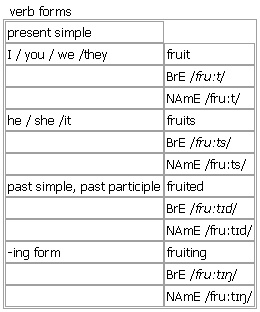 fruit
fruit

fruit [fruit fruits fruited fruiting] noun, verb BrE [fruːt] NAmE [fruːt]
noun 
1. countable, uncountable the part of a plant that consists of one or more seeds and flesh, can be eaten as food and usually tastes sweet
•tropical fruits, such as bananas and pineapples
• Eat plenty of fresh fruit and vegetables.
•a piece of fruit (= an apple, an orange, etc.)
•fruit juice
•fruit trees
compare ↑vegetable
see also ↑dried fruit, ↑first fruit, ↑soft fruit
2. countable (technical)a part of a plant or tree that is formed after the flowers have died and in which seeds develop
3. countable, usually plural (literary)all the natural things that the earth produces
4. countable (offensive)an offensive word for a ↑homosexual man
more at bear fruit at ↑bear v., forbidden fruit at ↑forbidden
Word Origin:
Middle English: from Old French, from Latin fructus ‘enjoyment of produce, harvest’, from frui ‘enjoy’, related to fruges ‘fruits of the earth’, plural (and most common form) of frux, frug- ‘fruit’.
Example Bank:
•Finish the meal with a piece of fresh fruit.
•He was now reaping the fruits of all his hard work.
•The crab apple bears a small, bitter fruit.
•Their work left them enough time to enjoy the fruits of their success.
•citrus fruits such as limes and lemons
•five daily portions of fruit and vegetables
•the first fruits of the government's health campaign
Idiom: ↑fruit of something
verb intransitive (technical) (of a tree or plant)
to produce fruit
Verb forms: 
Word Origin:
Middle English: from Old French, from Latin fructus ‘enjoyment of produce, harvest’, from frui ‘enjoy’, related to fruges ‘fruits of the earth’, plural (and most common form) of frux, frug- ‘fruit’.
|
|
